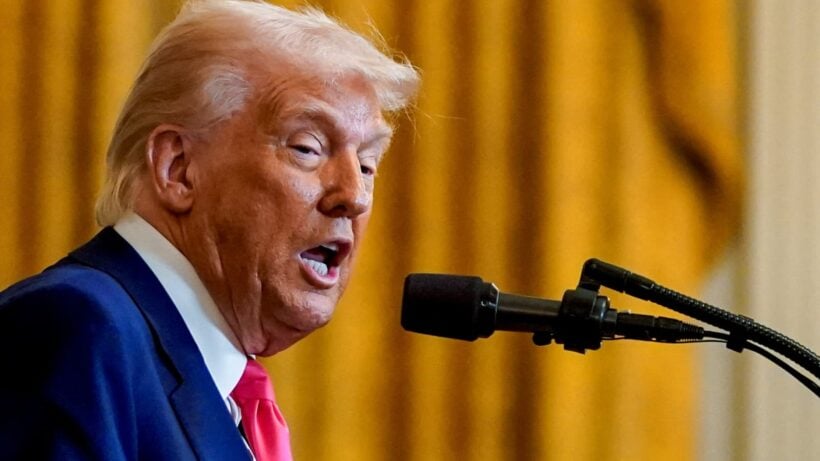
Ship-building to be key negotiating tool in South Korea-U.S. tariff talks
Major U.S. ally South Korea, which was slapped with a 25% rate under the latest Trump tariff regime, says ship-building could be a key advantage in negotiations with the White House.
“Since President Trump and the Trump administration are showing great interest in shipbuilding cooperation, we believe that the shipbuilding sector will be a very important negotiating card for us,” South Korea’s Minister of Trade, Industry, and Energy Ahn Duk-geun said on Wednesday, according to Reuters.
This comes after U.S. President Donald Trump and South Korea’s interim leader Han Duck-soo held talks on Tuesday to discuss tariffs. Several nations are looking to negotiate with the U.S to mitigate the effect of the U.S. protectionist trade policy.
— Lily Meckel
India’s central bank governor signals growth concerns amid U.S. tariffs
Speaking after the Reserve Bank of India’s decision to cut interest rates, the central bank’s Governor Sanjay Malhotra said he was “concerned about growth” in India due to the impact of U.S. tariffs.
He pointed out India is better placed than other countries to tackle the tariff-led hikes due to its narrower trade surplus with the U.S. and the lower “reciprocal” tariff rate it received from Washington, compared with other nations.
“My understanding is that the impact of these tariffs on India vis-à-vis some of the other countries [such as] China and some of the other countries, [is] much less,” Malhotra said.
— Lim Hui Jie
Deutsche Bank downgrades swathe of European firms in tariff firing line

Andrea Mantovani | Bloomberg | Getty Images
In a note to clients on Wednesday, strategists at Deutsche Bank downwardly revised target prices for 19 companies.
Many of the companies were in the European luxury and mining sectors. Gucci owner Kering’s target price was slashed by 39.7%, while British luxury giant Burberry’s target price was lowered by 35.7%. French conglomerate LVMH’s target price was cut by 16.5%.
In the mining sector, BHP, Anglo American, Glencore and Rio Tinto were among those with downgraded target prices.
“The direct impact of the tariffs is not a huge headwind in our view with … price increases able to offset the profit impact,” Deutsche Bank’s team said in their note. “However, weaker global stock markets and the broader economic uncertainty will weigh on confidence and we see this further postponing a recovery in luxury demand.”
On mining, Deutsche Bank advised investors to “seek selective exposure” in the coming six to 12 months.
“The reciprocal tariffs announced last week have driven the sharpest sell-off in Mining since 2020,” its strategists said. “Our base case now assumes global growth verging on recession over the next two quarters … While there is still the risk of further downside in the near term, mining valuations are approaching trough levels, [and] debt levels are low.”
— Chloe Taylor

